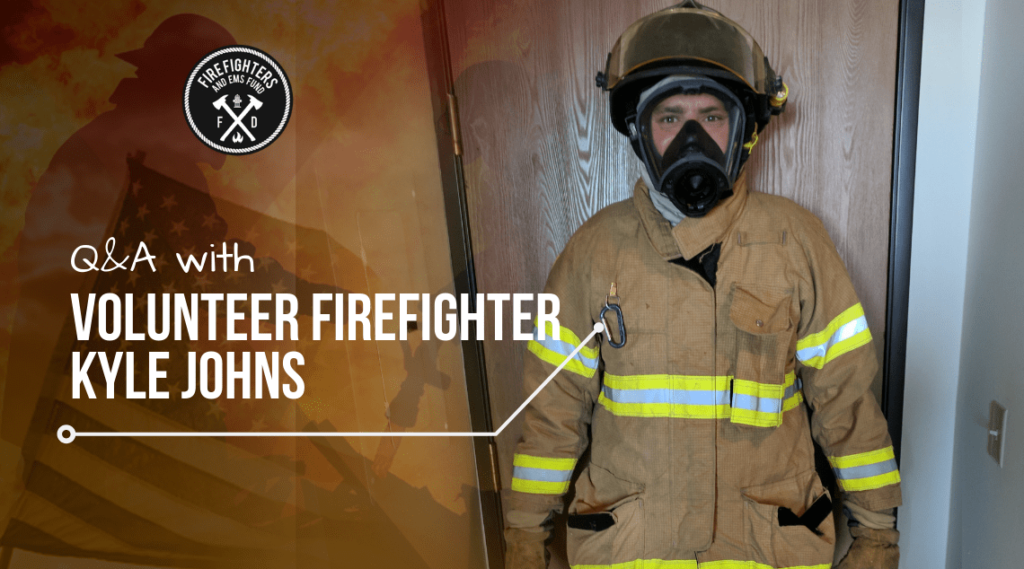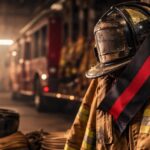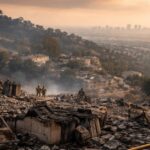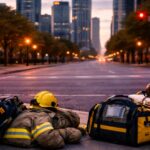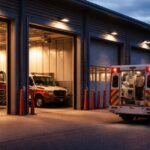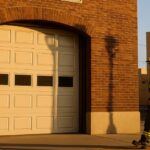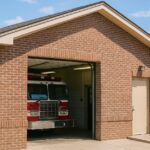Executive Director Nile Porter sat down with volunteer firefighter and Firefighters and EMS Fund board member, Kyle Johns, to get his take on the job and the most pressing issues in the industry.
Q&A With New Advisory Committee Member and Volunteer Firefighter Kyle Johns
Nile Porter, Executive Director
Q: What is your favorite thing about being a firefighter?
A: “I would say my favorite thing is knowing that you have the opportunity to know you can help individuals during their worst times. You may not always be able to provide comfort, but it’s the little things that count when bringing a small community like mine together.”
Q: What made you choose firefighting as a career?
A: “It was one of those things where I had one family member doing it and I also saw the opportunity to lend a hand for my community.”
Q: As a volunteer firefighter, are you stationed in a house similar to (city departments)?
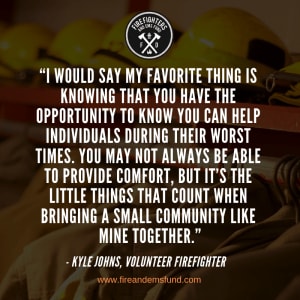
A: “I work on an on-call basis. We are given a pager and our department utilizes a smartphone app. The pager is primary, but the app helps us map our destinations. We use our personal vehicles to drive to the station and often drive our own vehicles to calls depending on the estimated response time. The app we use for navigation on our personal phones is a great example of how technology has evolved the volunteer firefighter profession.”
Q: If you could go back in time to warn yourself of something you didn’t understand about the firefighting profession, what would that be (to prepare yourself)?
A: “I think, I would have studied some of the more medical aspects of the profession because being a firefighter, you’re generally guaranteed to get 1 of 3 cancers due to the carcinogens, I think I would have studied those carcinogens more to have a chance to help myself and my peers mitigate those exposure risks.”
Q: Were any of your family members firefighters? If so, how many?
A: “I have an uncle who was a firefighter for 20 years, so he served as my inspiration. He showed me the impact you can have on a small community when you take action and serve a purpose that is bigger than yourself.”
Q: If you could give a few words of advice to a class of recruits who are about to graduate from the academy, what would you say?
A: “I would say never stop training. Do not allow yourself to ever stop training. Always be learning.”
Q: Is there anything more you would like to add or perhaps an issue you would like to bring attention to?
A: “I wish departments were able to have enough funding to have 2 sets of turnout gear because say I’m washing mine, I can always have a backup set to be ready to wear one. Sometimes you go on multiple runs. A few years back, maybe 5 or 6 years ago, we had some pretty strong wind come through our area. It was really only rain, but we got soaked. The next morning we had a structure fire it would have been nice to throw on clean gear or dry gear for that matter.”
Johns’ favorite thing about being a firefighter isn’t a job he does to get paid, but rather an opportunity to use your talents for the good of others. Whether you are in a large city or a town of fewer than 3,000 residents, you can make a difference.

